Fruit flies are considered among the most annoying household pests, buzzing around food and waste and generally being a disgusting nuisance. In the agricultural world, they are an outright menace, impacting whole economies by threatening dozens of fruit and vegetable species and costing hundreds of millions in lost crops.
They are also notoriously hard to control, demanding expensive and often harmful, repeat treatments that include spraying whole fields, with untold environmental implications.
In Africa and Asia, different species of fruit flies have wreaked havoc on a number of important fruit exports, including mango, of which India is the world’s number one producer, guava, sapota (chikoo), and pomegranate. These losses have cost farmers, food vendors, government agencies, and others in the supply chain, hundreds of millions of dollars. Even the local markets have been affected with some farmers uprooting their fruit trees due to severe infestations.
The Israeli agritech company Biofeed has been on the forefront of developing safe, eco-friendly pest control methods as alternatives to insecticides and pesticides, for the better part of two decades. And it is now bringing its green technology to India to help navigate the damage and set India’s mango industry on a new path.
SEE ALSO: Israeli Startup Launches AI-Powered Alert App To Help Farmers Save Crops From Disease, Pests
Late last month, Biofeed signed a memorandum of understanding (MOU) with India’s northwestern state of Gujarat, a deal facilitated by the Israeli NGO Start-Up Nation Central, which tracks Israel’s tech and innovation ecosystem, and the Indian tech incubator iCreate.
Gujarat’s Chief Minister Vijay Rupani, who was on a visit to Israel in July, also signed MOUs with two other Israeli companies, wastewater treatment solutions provider Aqwise, and kinetic storage manufacturer Chakratec Ltd. The deals include funded pilots in Gujarat, the home state of Indian Prime Minister Narendra Modi.
Biofeed is set to bring its innovative solution to the state to tackle two threats: the Bactrocera dorsalis, also known as the Oriental fruit fly, which is considered the most destructive and invasive of fruit fly species, and the Bactrocera zonata, or the Peach fruit fly, the subcontinent’s number two agricultural pest.
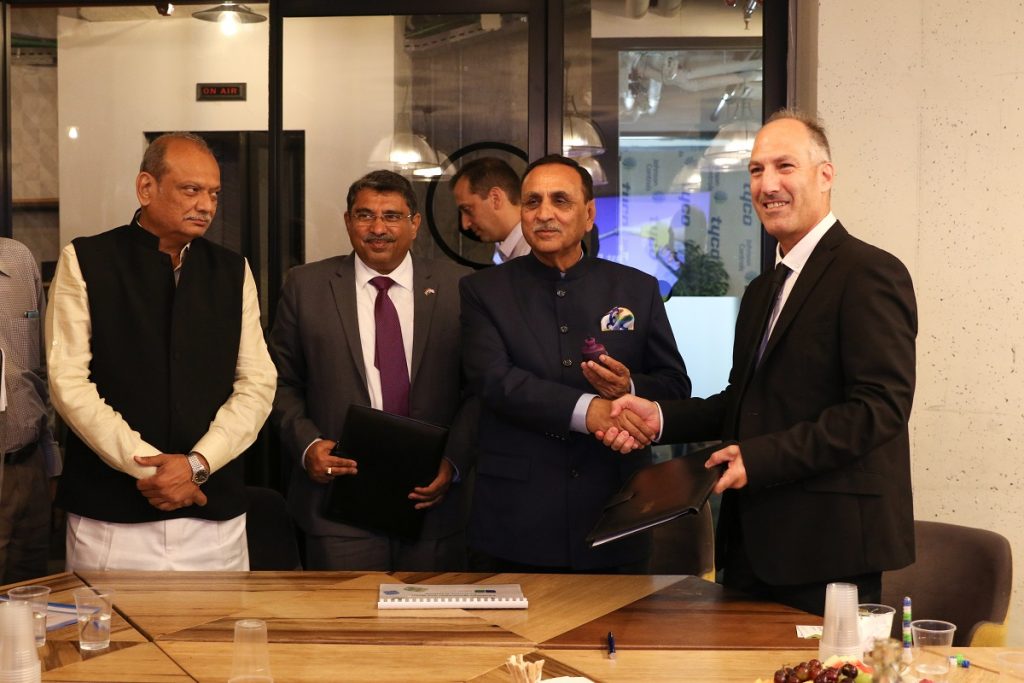
Biofeed’s Dr. Nimrod Israely signs an MOU with the chief minister of the Indian state of Gujarat, Vijay Rupani, in July 2018. Courtesy
Biofeed Founder Dr. Nimrod Israely tells NoCamels that the two species “belong to the most important group of pests in the world,” and can be “so damaging that some infestations can lead to 80-100 percent of crop loss,” when more typical losses number between 30 to 60 percent.
Israely says some 50-80 percent of insecticide applications are for fruit flies, and “in many cases, these solutions are useless, they don’t last, you have to spray every week and the chemicals can get washed away in the rain.” Not to mention the impact on other organisms.
Fruit fly control
Israely is intimately acquainted with the species. A former farmer himself with experience in chemical spraying, he went on to pursue a PhD in ecological entomology with a specialization in fruit flies.
He founded Biofeed in 2004 to “come up with a new technology to tackle fruit flies, a unique concept for pest control without any sprays, without trapping, or glue or any real maintenance.”
After some 11 years of R&D, and with Israel as a testing ground, the company launched its first product in 2015 based on a GCFR platform, or gravity-controlled fluid release, an odor-based lure that attracts the fruit fly species. Biofeed called it the FreeDome “because it provides farmers with freedom from pests and from a bad economic situation,” Israely says.
“The ability to turn smell into effective control was non-existent,” he explains, “and insects can pick up odors from distances.”
The lure, he says, contains an element that the pests like and one that activates the control method. “So it’s a free meal plus an active ingredient that is harmful for the pest but not to us or the crop – so it can not longer infest after being affected by the ingredient. It then dies.”
It worked on the Ceratitis capitata, or the Mediterranean fruit fly, and the Bactrocera oleae, also known as the Olive fruit fly, in Israel.
SEE ALSO: On The Menu: 12 Food-Agri Tech Startups To Watch In 2018
That same year, Biofeed began looking into a solution for the Oriental fruit fly, for which there was no known control system in Asia and Africa. “Government researchers, universities, the private sector – they were all working to address the problem of this fruit fly,” without much success, Israely tells NoCamels.
Sign up for our free weekly newsletter
SubscribeBy 2017, Biofeed had found the answer and it is now “the only known solution to the pest currently, and has a success rate of over 90 percent,” Israely claims.
For Biofeed, a little goes a long way and just one unit of the lure can last between 10 and 12 months, with drops released daily but at a snail’s pace. The company also works with 1-4 units per dunam (approximately 900 square meters ,or 10-40 per hectare, “so it covers a wide perimeter,” says Biofeed’s Head of Business Dotan Peleg.
Innovation-powered solution
Currently, Biofeed says it has a solution for a total of six fruit fly species, including four for which it claims to have the only known, effective solution in the world: the Oriental fruit fly, the Peach fruit fly, the Lesser Pumpkin fruit fly, or Dacus ciliatus also known as the Ethiopian fruit fly, and the Mango fruit fly, or the Ceratitis cosyra, which infests African crops.
The active ingredients in the FreeDome changes according to species, Peleg indicates, and new formulas rolled out this year provide solutions for two to three pest species at a time, Israely says.
The lures also specifically target the female flies, which Israely says are the more problematic ones.
“Most known solutions attract male flies, but we wanted to be as specific as possible, luring the female, to affect egg-laying and future populations,” he says, adding that the formula “harms nothing else in the environment; we took the pests out of the equation and left the rest to biological balance.”
“I’d like to say that we couldn’t hurt a fly, but we actually hurt many of them,” Peleg jokes.
A focus on developing countries
Israely says Biofeed chose to focus on developing countries in Asia and Africa for several reasons.
From a business perspective, western countries have other alternatives and the barriers to entry are high and rather expensive, he explains, and in developing countries, the time to market is much shorter.
Furthermore, the impact on the economies of developing countries is huge, and the change Biofeed says it brings to farmers’ lives is significant. “The aim is to change people’s lives for the better, and to give them food security,” Israely says. “Plus, I believe Asia and Africa are the future of agriculture.”
Peleg tells NoCamels that Biofeed’s solution can “secure food resources, doubling profitability and increasing exports while keeping the environment safe.”
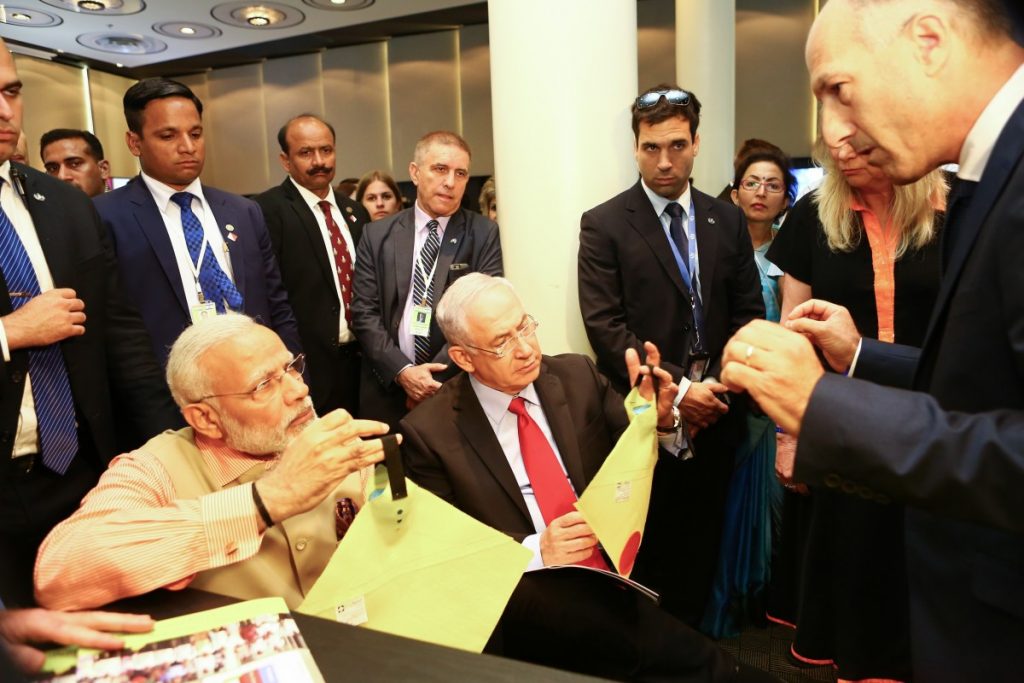
Biofeed founder Dr. Nimrod Israely showing the FreeDome lure to Indian PM Narendra Modi and Israeli PM Benjamin Netanyahu, in July 2017. Photo by Avi Dodi
The company works at the government level which Peleg says “may not be common to all but it makes sense for us.” Israely adds that these infestations are a state problem and the state must provide the solution to the farmers.
“It’s a service provided by the government, like electricity, roads, education,” says Israely.
Biofeed, he says, is part of the future of pest control that doesn’t involve chemicals or spraying.
Currently, Biofeed completed its second year of field work and demos in India. In Togo, Ethiopia, and Senegal, completed its first successful year, and is now in talks with officials from a number of other countries in Africa and Asia.
The company was one of 18 startups to accompany Israeli Prime Minister Benjamin Netanyahu while on an official state visit to India earlier this year, selected by the India-Israel Innovation Challenge as part of the India-Israel Innovation Bridge. It was chosen as one of six companies to make it to the final stages of the program.
Related posts

Editors’ & Readers’ Choice: 10 Favorite NoCamels Articles

Forward Facing: What Does The Future Hold For Israeli High-Tech?

Impact Innovation: Israeli Startups That Could Shape Our Future


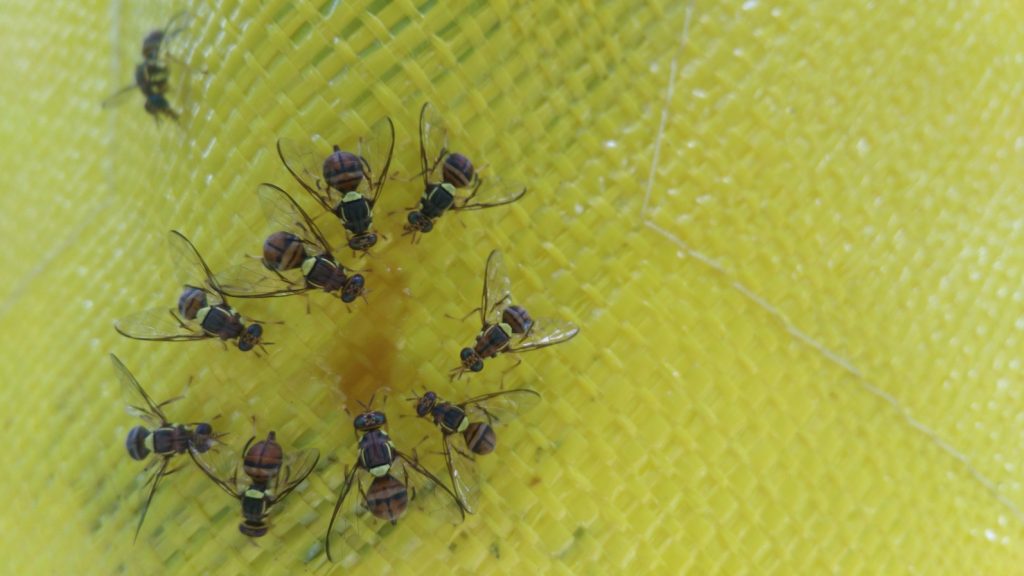
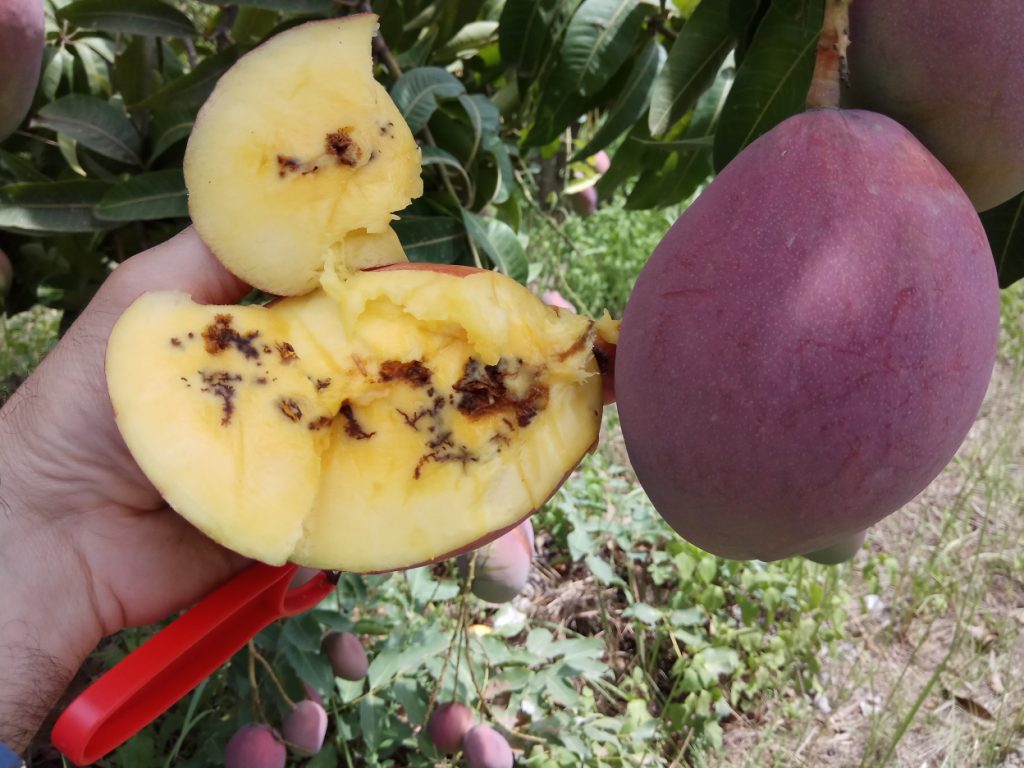
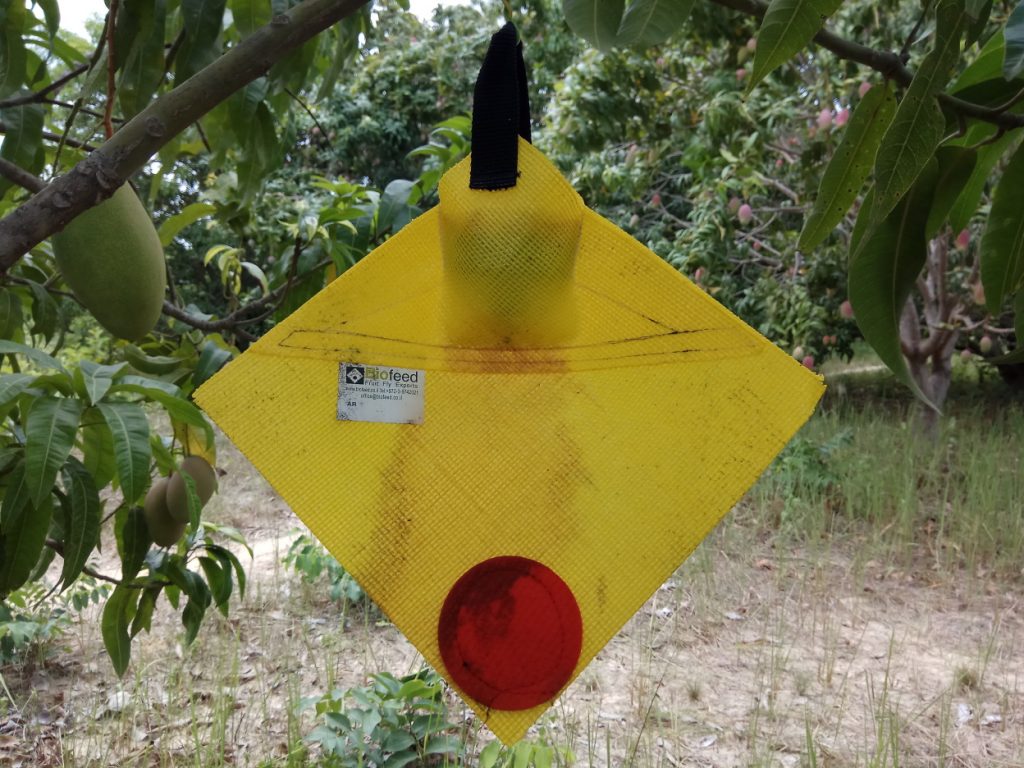
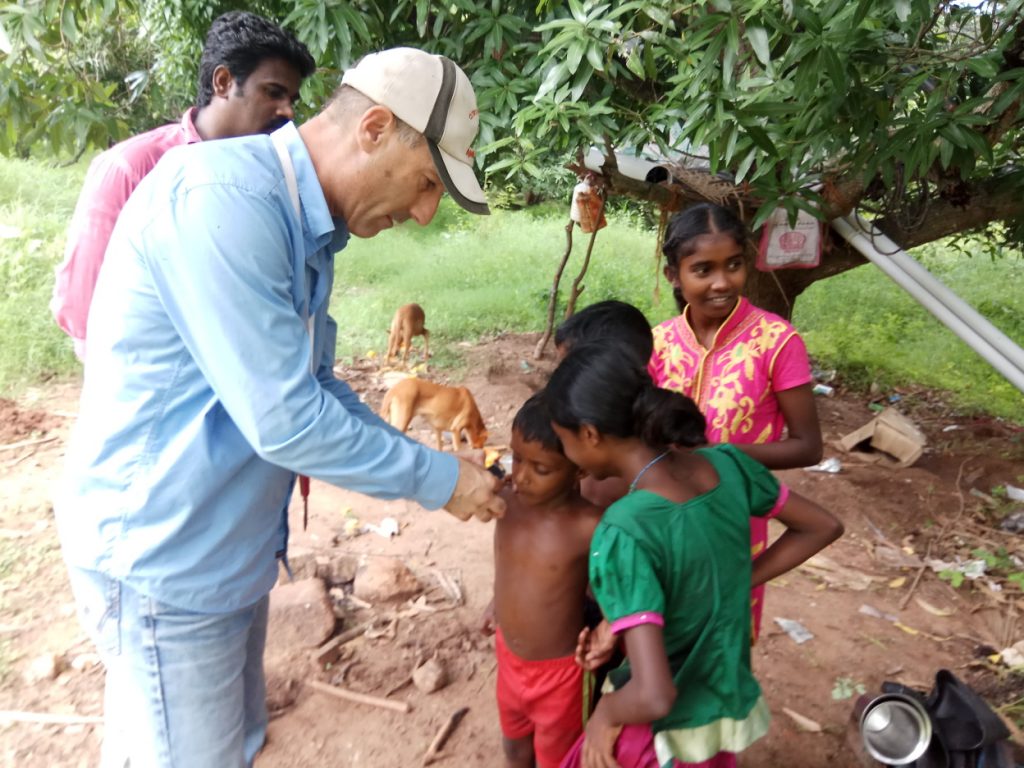

Facebook comments